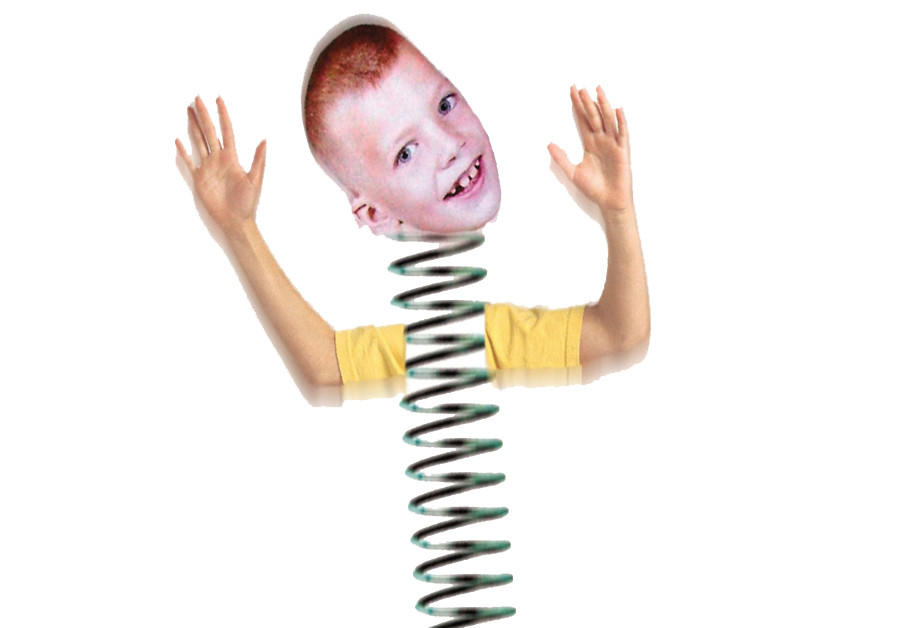My child has ADHD. Now what?

‘ADHD CHILDREN are very sensitive to anything that remotely resembles rejection.’. (photo credit: TNS)
When their child has been diagnosed with attention deficit hyperactivity disorder, parents often ask me: “Where do we begin?” This is not a simple question.
There are well-supported treatment approaches that help in the management of a child with ADHD. Treatment for childhood ADHD is a team effort involving parents, therapist, teachers, pediatrician, child psychiatrist and other significant people in the child’s life. The most effective treatments for childhood ADHD are cognitive-behavioral therapy with parental counseling, school-based interventions, including accommodations, and stimulant medication (“ADHD: Clinical Practice Guideline for the Diagnosis, Evaluation, and Treatment of Attention-Deficit/Hyperactivity Disorder in Children and Adolescents,” Pediatrics 128:5 [November 2011]; J.R. Ramsay, Journal Of Cognitive Psychotherapy 25:4 [2010]).
At the core of the child’s problem is the accumulation of negative feedback that he or she draws because of improper and/or disturbing behaviors in the classroom or home. ADHD children are very sensitive to anything that remotely resembles rejection. As a result, these kids often suffer from a negative view of themselves that can turn them off from school and make them more vulnerable to depression and/or oppositional behavior toward their teachers and parents.
Effective treatment aims at helping the child succeed at both his/her home and school environments in order to reach his/her fullest potential.
Cognitive-behavior therapy for parents
The goal of cognitive-behavioral therapy (CBT) for parents is to help them modify maladaptive beliefs about their child’s behavior (e.g., he’s a troublemaker) and teach effective parenting skills that can help their child succeed.
For Beth and Josh, parents of three children, the evening is always hectic, especially during homework time and bedtime. Shimon, their middle child in the third grade, had been recently diagnosed with hyperactive-impulsive ADHD and was scheduled to see a child psychiatrist to evaluate the need for medication.
Josh and Beth came to see me, desperately seeking help. Josh’s major complaint was that Shimon is simply a bad kid who has succeeded in alienating his entire family. He fights with his siblings all the time and does not listen to his parents. Beth complained about Shimon’s room looking like a cyclone hit it and that he constantly loses everything, his schoolbooks, his keys and more. Both parents felt fed up with Shimon.
CBT helped Josh and Beth to understand that Shimon’s behavior exhibited classic symptoms of ADHD behavior. A crash course on the neurochemical causes of ADHD behavior helped them to rethink some of their negative beliefs about Shimon and soften their reactions. They began to feel more compassion for Shimon.
Beth helped Shimon to organize his room and develop a clean workspace for doing his homework. Shimon could not do that on his own, since he is too easily distracted. Josh worked with Shimon on developing a time schedule for playtime on the computer and homework. Josh was helped to understand that his son is indeed very sensitive to rejection, so it is critical to be more patient and not to personalize the fact that Shimon did not listen. The parents began to use praise instead of anger to reinforce Shimon’s positive behavior.
I encouraged Josh and Shimon to choose an activity that they could do together once or twice a week. They decided to play basketball, and they had fun together, shooting hoops and laughing.
Beth consulted with a dietitian about food choices and ADHD and began to choose her foods carefully. She believes that this also helped Shimon.
School-based intervention
Under my guidance, the parents met with Shimon’s schoolteacher, who welcomed the meeting and was open to advice that would help her to succeed with Shimon. Some of my suggestions included Shimon sitting close to the teacher in order to lessen distraction and allowing Shimon more time for some exercise and movement.
Literature suggests that running in place for five minutes can help an ADHD child produce enough dopamine and adrenalin to increase attentiveness and decrease hyperactivity.
In addition, the parents asked the teacher for some exam accommodations such as extra time and an opportunity to clarify exam directions. The parents and the teacher agreed to communicate more frequently to make sure that Shimon understands all homework assignments.
ADHD medication
Central nervous system stimulants are the most commonly prescribed ADHD medications. These drugs work by increasing the amounts of the brain chemicals dopamine and norepinephrine which enhance attentiveness. Examples of these drugs include methylphenidate (Ritalin) and amphetamine-based stimulants (Adderall). In addition, some newer drugs are available in Israel, and the choices should be discussed with the prescribing physician.
Studies have shown that between 70% and 80% of children with ADHD have fewer ADHD symptoms when they take these fast-acting medications. While there are some side effects involved in taking stimulant medications, American Academy of Pediatrics (November 2011) clearly states that the benefits far outweigh the minimal risks. Any parents getting their child started on stimulant medication should discuss this matter fully with their doctor.
Rewards
A final word of advice for parents of an ADHD child. A smile, positive comment, a hug, a verbal reminder that you love this child or other rewards from you can improve your child’s attention, concentration, impulse control and, most important, self-esteem. Reward your ADHD child for small achievements – these will lead to bigger successes down the road.
The writer is a marital, child and adult cognitive-behavioral psychotherapist with offices in Jerusalem and Ra’anana. www.facebook.com/drmikegropper; drmikegropper@gmail.com
Join Jerusalem Post Premium Plus now for just $5 and upgrade your experience with an ads-free website and exclusive content. Click here>>






Comments are closed.